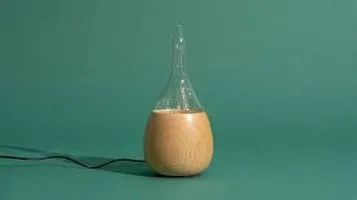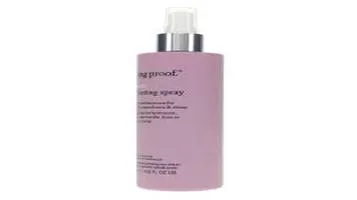Aromatherapy Diffusers: A Comprehensive Review
Aromatherapy diffusers are devices designed to disperse essential oils into the air, promoting relaxation, wellness, and a pleasant atmosphere. These diffusers come in various types, including ultrasonic, nebulizing, evaporative, and heat-based models, each offering unique benefits. Ultrasonic diffusers use water and ultrasonic waves to create a fine mist, perfect for humidifying and scenting a room. Nebulizing diffusers, on the other hand, don't require water, using air pressure to release a concentrated aroma directly from the oil. Evaporative diffusers rely on airflow to evaporate and disperse the oil, while heat diffusers use gentle warmth to aid evaporation. Ideal for home or office use, aromatherapy diffusers enhance mood, reduce stress, and improve air quality, making them a popular choice for holistic wellness.

Aromatherapy diffusers have increasingly become a staple in homes, offices, and wellness centers around the world. These devices, which disperse essential oils into the air, offer a variety of benefits that range from enhancing mood to providing therapeutic health benefits. This review will delve into the different types of aromatherapy diffusers, their benefits, drawbacks, and some tips on how to choose the right one for you.
Types of Aromatherapy Diffusers
There are four main types of aromatherapy diffusers: ultrasonic, nebulizing, evaporative, and heat diffusers.
1. Ultrasonic Diffusers: These are perhaps the most popular type of diffuser. They use ultrasonic waves to create a fine mist from a mixture of water and essential oils. The mist is then dispersed into the air, creating a soothing environment. Ultrasonic diffusers are known for their quiet operation and their ability to maintain the integrity of the essential oils, as they do not use heat.
2. Nebulizing Diffusers: These diffusers use pressurized air to atomize essential oils into fine particles. Unlike ultrasonic diffusers, they do not require water, making the aroma more potent and pure. However, they can be noisier and more expensive than their ultrasonic counterparts.
3. Evaporative Diffusers: These work by using a fan to blow air through a pad or filter that has been soaked in essential oils. As the air passes through, it evaporates the oil and disperses it into the room. While these are generally inexpensive and easy to use, they may not be as effective in large spaces or for long-term use.
4. Heat Diffusers: These use heat to evaporate essential oils into the air. While they are often the least expensive option, the heat can alter the chemical composition of the oils, potentially diminishing their therapeutic benefits.
Benefits of Aromatherapy Diffusers
1. Relaxation and Stress Relief: One of the most well-known benefits of aromatherapy diffusers is their ability to promote relaxation and reduce stress. Essential oils like lavender, chamomile, and ylang-ylang are known for their calming properties. Using a diffuser can fill your space with these soothing scents, helping to create a peaceful atmosphere.
2. Improved Sleep Quality: Many people use aromatherapy diffusers as a natural remedy for insomnia or poor sleep quality. Scents like lavender and cedarwood can help promote a restful night’s sleep. Setting a diffuser by your bedside can create a calming environment conducive to sleep.
3. Enhanced Mood and Energy Levels: Essential oils like citrus, peppermint, and eucalyptus are known for their invigorating properties. Using these oils in a diffuser can help elevate your mood, increase energy levels, and improve focus and concentration.
4. Air Purification: Some essential oils have antibacterial, antiviral, and antifungal properties. Using a diffuser can help purify the air, reducing the risk of airborne illnesses and improving overall air quality.
5. Pain Relief: Certain essential oils, such as eucalyptus and peppermint, have anti-inflammatory and analgesic properties. Diffusing these oils can help alleviate headaches, migraines, and muscle pain.
Drawbacks of Aromatherapy Diffusers
1. Initial Cost: High-quality diffusers can be quite expensive, especially nebulizing models. While there are budget-friendly options available, they may not offer the same level of performance or durability.
2. Maintenance: Diffusers require regular cleaning to prevent the buildup of oils and to ensure they function properly. Neglecting maintenance can lead to reduced effectiveness and even malfunctions.
3. Potential Allergies: Some people may be sensitive or allergic to certain essential oils. It’s important to test a small amount of oil before using it extensively in a diffuser to avoid adverse reactions.
4. Limited Coverage: Depending on the size and type of diffuser, the coverage area may be limited. Larger spaces may require multiple diffusers or a more powerful model to effectively disperse the essential oils.
Choosing the Right Diffuser
When choosing an aromatherapy diffuser, consider the following factors:
1. Type of Diffuser: Determine which type best suits your needs. Ultrasonic diffusers are great for maintaining the integrity of essential oils, while nebulizing diffusers offer more potent aromas without the need for water.
2. Room Size: Consider the size of the room where you’ll be using the diffuser. A larger room may require a more powerful diffuser or multiple units to ensure adequate coverage.
3. Noise Level: If you’re sensitive to noise, opt for an ultrasonic diffuser, which tends to operate more quietly compared to other types.
4. Aesthetics and Features: Many diffusers come with additional features like LED lighting, timers, and adjustable mist settings. Choose one that fits your aesthetic preferences and desired functionality.
Conclusion
Aromatherapy diffusers offer a myriad of benefits, from enhancing relaxation and sleep quality to purifying the air and boosting mood and energy levels. While there are some drawbacks, such as initial cost and maintenance, the overall advantages make them a worthwhile investment for many. By considering your specific needs and preferences, you can choose the right diffuser to transform your space into a serene and therapeutic haven.






